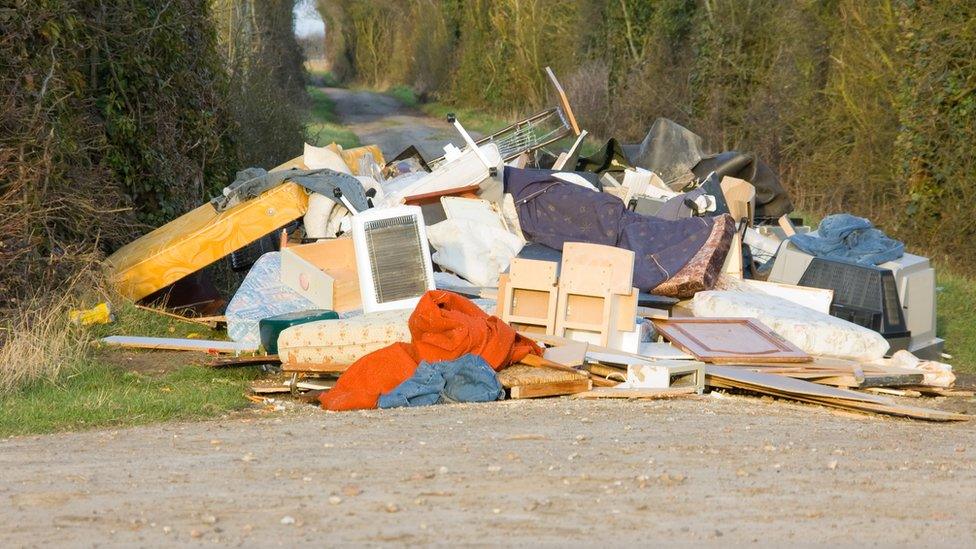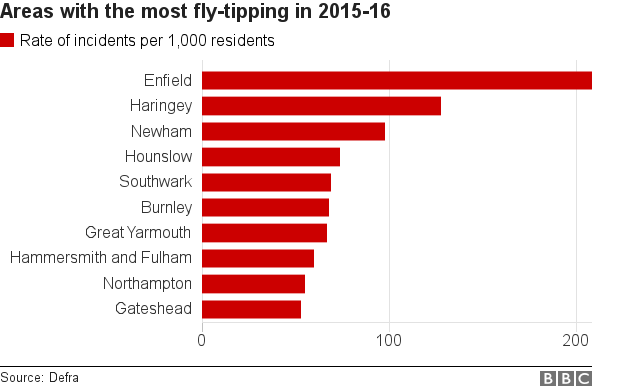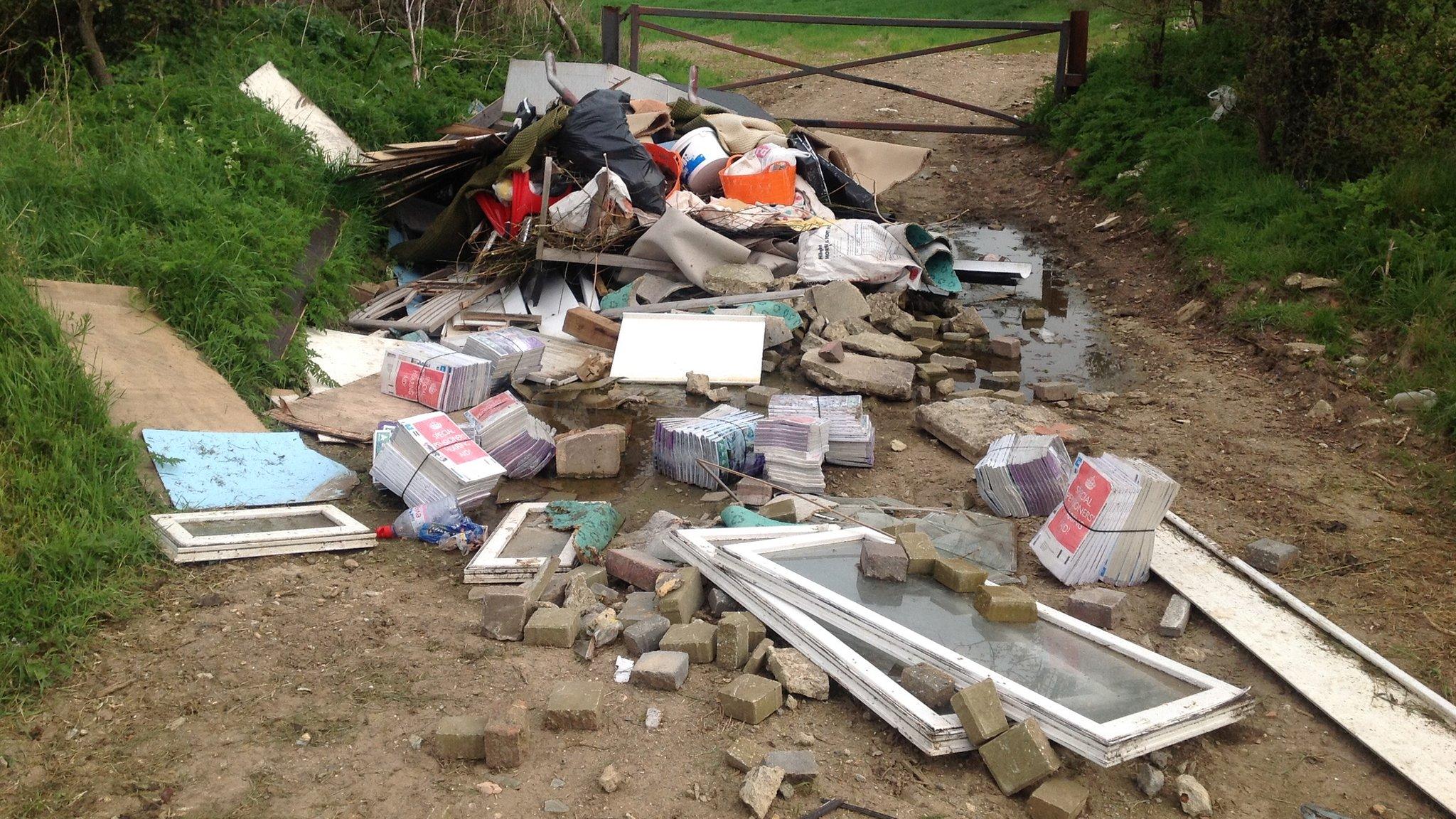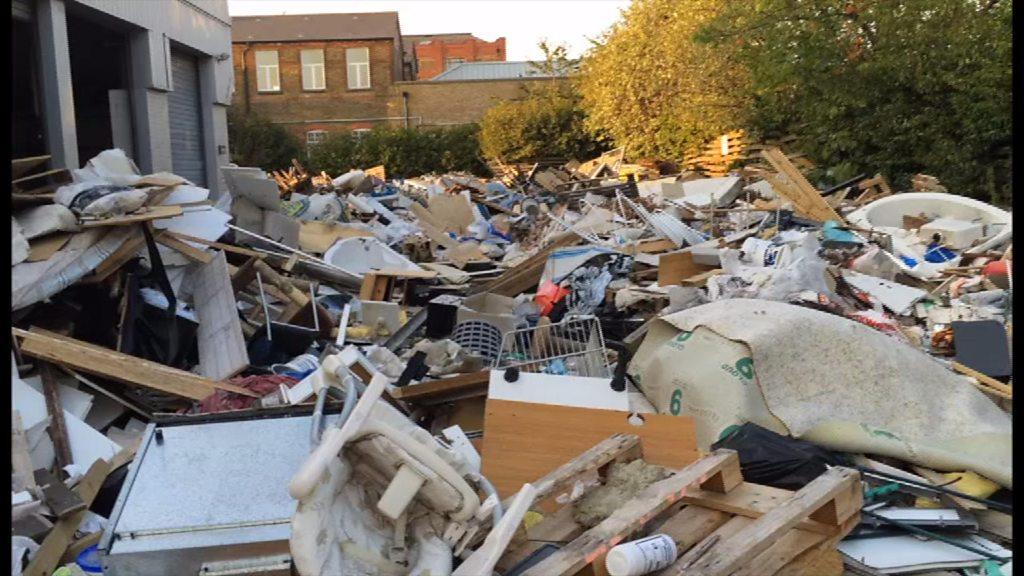Fly-tipping clean-up costs £50m as incidents rise
- Published

Councils reported almost a million incidents of fly-tipped rubbish in a year
Fly-tipping was reported almost 107 times every hour across England, as the number of incidents rose for the third year in a row.
Official figures show councils reported 936,090 cases of fly-tipping in 2015-16, costing almost £50m to clear up.
Campaigners say financial pressure on local authorities had resulted in waste collection services being cut.
One council alone handled more than 70,000 cases of fly-tipping.
The number of incidents in Enfield was equivalent to 216 for every 1,000 residents. It means it cost £8.24 per person in clearance costs alone.

'It fell off the back of the van' and other excuses
Samantha Harding, litter programme director at the Campaign to Protect Rural England, said: "Financial pressure on local councils has caused some local collection services to be cut and it seems that people have taken this as a licence to dump their waste illegally.
"There needs to be a review of England's struggling waste management systems, with a new ambitious programme to haul them into the 21st Century.
"We cannot afford to waste our valuable resources in this way."
About half of the rubbish illegally tipped was found on highways.
And about a third of all incidents were classed as a "small van load" worth of waste.
The figures do not yet include new powers councils were given in May 2016 to hand out on-the-spot fines of up to £400.
The Department for Environment, Food and Rural Affairs figures, external show fly-tipping incidents had fallen from more than 1.28 million in 2007-08 to about 711,500 cases in 2012-13 before starting to rise again.
Country Land and Business Association president Ross Murray said: "These figures do not tell the full story of this disgraceful behaviour, which blights our beautiful countryside.
"Local authorities tend not to get involved with clearing incidences of fly-tipped waste from private land, leaving the landowner to clean up and foot the bill."
The association has called for the enforcement of stronger penalties, ensuring powers to use fixed penalty notices and seize vehicles are used and reducing council fees to legally dispose of waste.
Councillor Judith Blake, an environment spokeswoman for the Local Government Association said: "This is money that would be better spent on vital front line services.
"Litter and fly-tipping is environmental vandalism - it's unpleasant, unnecessary and unacceptable."
A Defra spokeswoman said new powers and advances in technology had made it easier for local authorities to clamp down on waste crime.
She said 98% of fly-tipping prosecutions resulted in a conviction - a "clear warning" to anyone involved in "serious waste crime".
"Fly-tipping blights communities and the local environment, which is why we are committed to tackling this anti-social behaviour so everyone can enjoy a cleaner, healthier neighbourhoods and countryside," she added.
- Published19 September 2016

- Published19 September 2016
